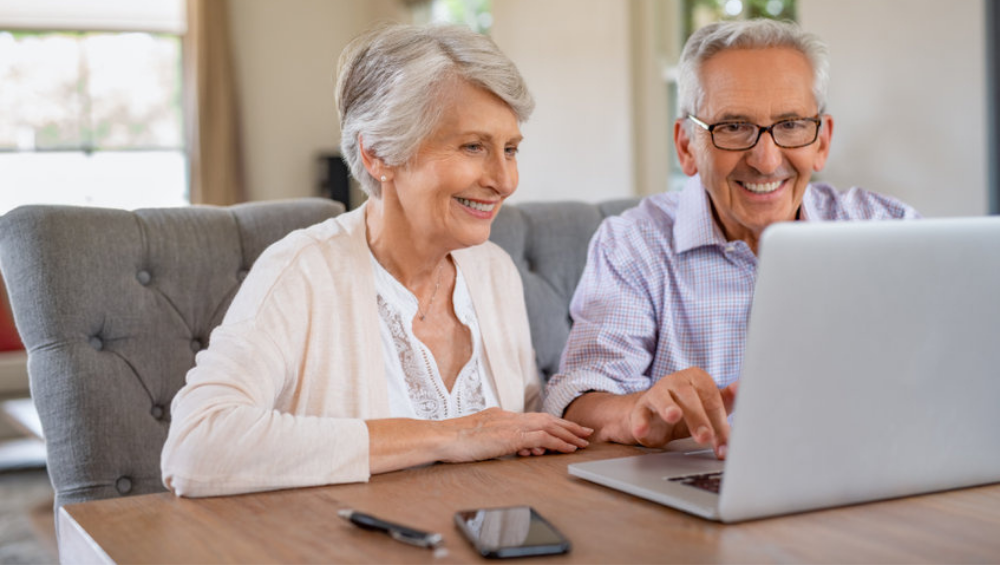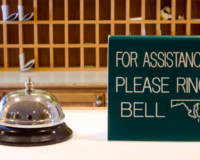Do you feel left out because you don’t have WhatsApp? Or just plain dumb because you can’t find that video that your friend just recommended to you on YouTube? Maybe you don’t even know how to spell it, is it Utube or YouTube?
Welcome to the twenty-first century which has already been going on for twenty-one years. Where were we seniors when this happened? Maybe we were just waiting for the internet to be over, and it was all a bad dream. Have you missed your close relative’s funeral because you don’t subscribe to What’s App? That’s exactly what happened to me a few weeks ago when I found out too late that my close cousin’s mom passed away. The funeral was on a Sunday, and I could have easily attended, but how could I go when I knew zero about it? Do you feel lonely because you are getting fewer and fewer phone calls from your grandchildren? Guess what? I found out about my new grandson via text just like all the other friends and relatives. As the old saying goes, “if you can’t beat them join them”.
The primary challenge for seniors is to have a meaningful day. Getting up in the morning can be tough if there is nothing specific on the agenda. This can adversely affect a senior’s health by causing mood swings, depression, early aging, and even premature death. The wisest thing for seniors is to overcome their technology fear thinking it couldn’t possibly be something they could tackle this late in the game. Once the fear is overcome, seniors can connect to family and friends via Facebook, Zoom, WhatsApp, email, and texting.
Before the nineteenth century the average life expectancy of a person was between the ages of thirty and forty. In just two centuries the life expectancy of a human being has jumped by 225%, according to Google. This means the average life span is now seventy-nine years.
This so-called, “Silver Tsunami” is bound to slam into our healthcare system by overloading our nursing homes, assisted living facilities and hospitals. We can just look back on the past year and see what happened to our hospitals when they became overloaded with patients, many of whom were senior citizens. In addition, we experienced the terrible forcing of these patients back into the nursing homes because the hospitals couldn’t handle the congestion. Instead of looking at the increase in life expectancy in a financially negative way, let’s see how we can help seniors cope in the age of technology and age productively.
The longer life expectancy is great news for seniors even though it will be a challenge for the health care system. Assisted and independent living facilities catering exclusively to seniors are amazing systems and opportunities for seniors to flourish.
One of the ways that the younger generation can feel needed is to incorporate the use of technology for seniors. The younger people, whether it is grandchildren or volunteers need to figure out how to get senior citizens educated in using the latest technology be it, computers, tablets, smartphones, or smartwatches. Along with the knowledge of how to use these devices is app education. Every day new apps are being invented and many of them are safety features that are a must for every senior’s smartphone.
The one matter that hospitals, banks, and stores have in common is that they are equipped with some type of security system. Without proper protection against intruders, these facilities are at risk for theft or worse. Similarly, we must bolster the security of our loved ones who are living alone.
Smartphone Doorbells
For example, if a senior is living alone there are safe apps for turning on and off the lights, reminders to shut the stove and let’s not forget about the ring doorbell. As most of us are familiar with this amazing invention we should make sure that seniors become acquainted with it as well. This will mean peace of mind for children and grandchildren knowing that their parents or grandparents will only open the door if the person on their phone screen is familiar to them. Some of these bell systems also have video recordings so that loved ones can check to see who tried to get into the homes. If the senior is at a doctor’s appointment it would be so nice for them to see that one of their grandchildren was ringing the bell and even though the senior was not there to answer the door, at least they are aware that their grandchild came to visit.
Medical Alert Pendants
A medical alert pendant is a wonderful addition to the security of a loved one but challenging to get them to wear it. You can have it connected to various phone numbers including ambulance companies and family members or neighbors. All the person has to do is to push a button and the emergency numbers will be called. So even if a elderly person falls in the bathroom or tub (it is waterproof) the call will be made. As long as they are still conscious no matter what happens to them, they can easily press the button.
When my mother-in-law rented an apartment alone in Florida for the winter, my husband flew down with her to set her up safely. He purchased the latest medical alert pendant, giving her full instructions on its use and advising her to always wear it. When he finally went again to pick her up at the end of the winter, he was shocked to find it back in the box and not on her neck. “I’m perfectly capable of taking care of myself, see nothing happened to me”, she claimed. So much for the medical pendant.
Meal Apps
A senior living at home is not always in the mood of cooking a meal for themselves. I’m sure it has happened that you, as a senior, will have a bowl of cereal for supper instead of a home cooked meal. Children are busy during the week and may not be able to bring over a hot cooked meal. Sometimes, they will be kind enough to load the freezer, however you may not feel like preparing in advance and taking out a frozen meal. Even if you do have a microwave, you might just not be tempted to even use that little effort. There are many programs which offer readymade meals that are delivered to one’s home with the push of a button. For example, Blue Apron is a company which puts all the ingredients for a meal in a box and delivers it straight to your door which makes it much easier to put together a delicious hot fresh meal. Or restaurants have specific apps that will bring the food to you in a ten-minute notice. Society must learn to incorporate technology into seniors’ lives to keep them sustained and healthy.
Are Seniors Eager to Join the Digital Society?
Surprisingly seniors are willing to join the digital society, but some have trouble learning this new language. They are well aware of how being connected can benefit both their emotional and physical wellbeing. Researchers conducted in-depth interviews with adults ages 65 to 93 to understand their social networks and how they related to the use of technology in an increasingly global world. Especially, this past year of social distancing and isolation, it was imperative that all people learn about micro communications such as Zoom and Facebook. Instant photos and videos from loved ones via WhatsApp reduce the loneliness in what has been a very long day.
Final Words
Just a couple of years ago, technology would have been an expectation for seniors but as of this past year it is a necessity. What would any of us have done without our smart phone and computers? Most of the communication between people has been virtual and we must be so thankful that G D and our scientists had the foresight to invent all these apps for our devices. Schools were able to function, religious clergymen were able to give lectures and support to their constituents and doctors were able to treat their patients remotely. Of course, pictures and videos do not replace human contact, but it certainly was better than none. This pandemic truly forced our senior citizens to learn new technologies.
Next time you visit or get a visit from a loved one ask if they would like to have help setting up a Facebook or Instagram account. Young ones must be patient and not get annoyed while educating their loved ones on social media etiquette. Seniors should be taught what information can be shared and how often sharing should occur. You may be surprised at how adept your grandmother will become at communicating with her smartphone, with pictures, videos and inspiring with knowledge that only a mature person knows. It’s also nice for a grandchild to be able to teach their grandparent instead of it always being the other way around. It will give the grandchild new confidence and a new purpose in life.





